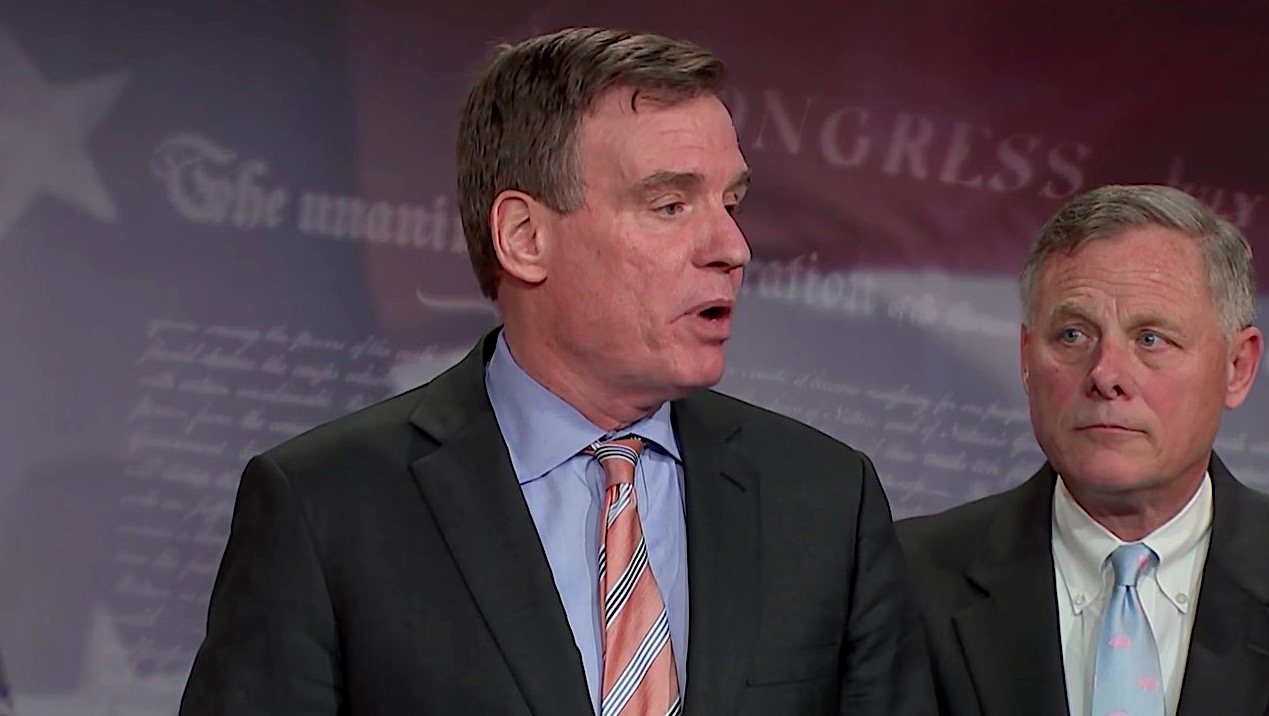The Senate Intelligence Committee will explore Russian election disinformation, 'fake news' trolls today


A free daily email with the biggest news stories of the day – and the best features from TheWeek.com
You are now subscribed
Your newsletter sign-up was successful
The Senate Intelligence Committee is holding open hearings Thursday on Russian interference in the U.S. election through technology and disinformation, with a slate of academic and cybersecurity experts scheduled to testify, including former NSA director Gen. Keith Alexander. Committee Chairman Richard Burr (R-N.C.) says the committee has requested interviews with 20 individuals, five of which have been scheduled, but he named only one of the 20, President Trump's son-in-law and top aide Jared Kushner.
The Senate Intelligence Committee — which presented itself Wednesday as the quieter, more responsible older sibling of the House Intelligence Committee — is in talks to interview former British MI6 agent Christopher Steele, who compiled the mostly unverified dossier on Trump's connections with Russian officials, NBC News reported Wednesday, citing "three sources with direct knowledge." But Steele is wary to leave London. He's reportedly worried about his safety and how he will be treated by the Trump administration. The FBI was in talks to pay Steele for information last fall, "sources familiar with the matter" told NBC News, but that fell through.
Other people who have agreed to testify include Trump campaign officials Paul Manafort, Carter Page, and Roger Stone, but the committee has not yet reached an agreement on when to interview them or the terms, two congressional officials tell NBC News, adding that criminal immunity for talking is not likely on the table.
The Week
Escape your echo chamber. Get the facts behind the news, plus analysis from multiple perspectives.

Sign up for The Week's Free Newsletters
From our morning news briefing to a weekly Good News Newsletter, get the best of The Week delivered directly to your inbox.
From our morning news briefing to a weekly Good News Newsletter, get the best of The Week delivered directly to your inbox.
On Thursday, the Senate Intelligence Committee will explore the various ways Russia tried to influence the U.S. presidential election and is meddling in other elections, too. "There were upwards of 1,000 paid internet trolls working out of a facility in Russia, in effect, taking over series of computers, which is then called a botnet," ranking Democrat Sen. Mark Warner (Va.) said Wednesday. One line of inquiry is whether Russian fake news was served to voters in key states like Michigan, Pennsylvania, and Wisconsin, he added. "We are in a whole new realm around cyber that provides opportunity for huge, huge threats to our basic democracy."
A free daily email with the biggest news stories of the day – and the best features from TheWeek.com
Peter has worked as a news and culture writer and editor at The Week since the site's launch in 2008. He covers politics, world affairs, religion and cultural currents. His journalism career began as a copy editor at a financial newswire and has included editorial positions at The New York Times Magazine, Facts on File, and Oregon State University.
-
 Political cartoons for February 20
Political cartoons for February 20Cartoons Friday’s political cartoons include just the ice, winter games, and more
-
 Sepsis ‘breakthrough’: the world’s first targeted treatment?
Sepsis ‘breakthrough’: the world’s first targeted treatment?The Explainer New drug could reverse effects of sepsis, rather than trying to treat infection with antibiotics
-
 James Van Der Beek obituary: fresh-faced Dawson’s Creek star
James Van Der Beek obituary: fresh-faced Dawson’s Creek starIn The Spotlight Van Der Beek fronted one of the most successful teen dramas of the 90s – but his Dawson fame proved a double-edged sword
-
 NIH director Bhattacharya tapped as acting CDC head
NIH director Bhattacharya tapped as acting CDC headSpeed Read Jay Bhattacharya, a critic of the CDC’s Covid-19 response, will now lead the Centers for Disease Control and Prevention
-
 Witkoff and Kushner tackle Ukraine, Iran in Geneva
Witkoff and Kushner tackle Ukraine, Iran in GenevaSpeed Read Steve Witkoff and Jared Kushner held negotiations aimed at securing a nuclear deal with Iran and an end to Russia’s war in Ukraine
-
 Pentagon spokesperson forced out as DHS’s resigns
Pentagon spokesperson forced out as DHS’s resignsSpeed Read Senior military adviser Col. David Butler was fired by Pete Hegseth and Homeland Security spokesperson Tricia McLaughlin is resigning
-
 Judge orders Washington slavery exhibit restored
Judge orders Washington slavery exhibit restoredSpeed Read The Trump administration took down displays about slavery at the President’s House Site in Philadelphia
-
 Hyatt chair joins growing list of Epstein files losers
Hyatt chair joins growing list of Epstein files losersSpeed Read Thomas Pritzker stepped down as executive chair of the Hyatt Hotels Corporation over his ties with Jeffrey Epstein and Ghislaine Maxwell
-
 Judge blocks Hegseth from punishing Kelly over video
Judge blocks Hegseth from punishing Kelly over videoSpeed Read Defense Secretary Pete Hegseth pushed for the senator to be demoted over a video in which he reminds military officials they should refuse illegal orders
-
 Trump’s EPA kills legal basis for federal climate policy
Trump’s EPA kills legal basis for federal climate policySpeed Read The government’s authority to regulate several planet-warming pollutants has been repealed
-
 House votes to end Trump’s Canada tariffs
House votes to end Trump’s Canada tariffsSpeed Read Six Republicans joined with Democrats to repeal the president’s tariffs
